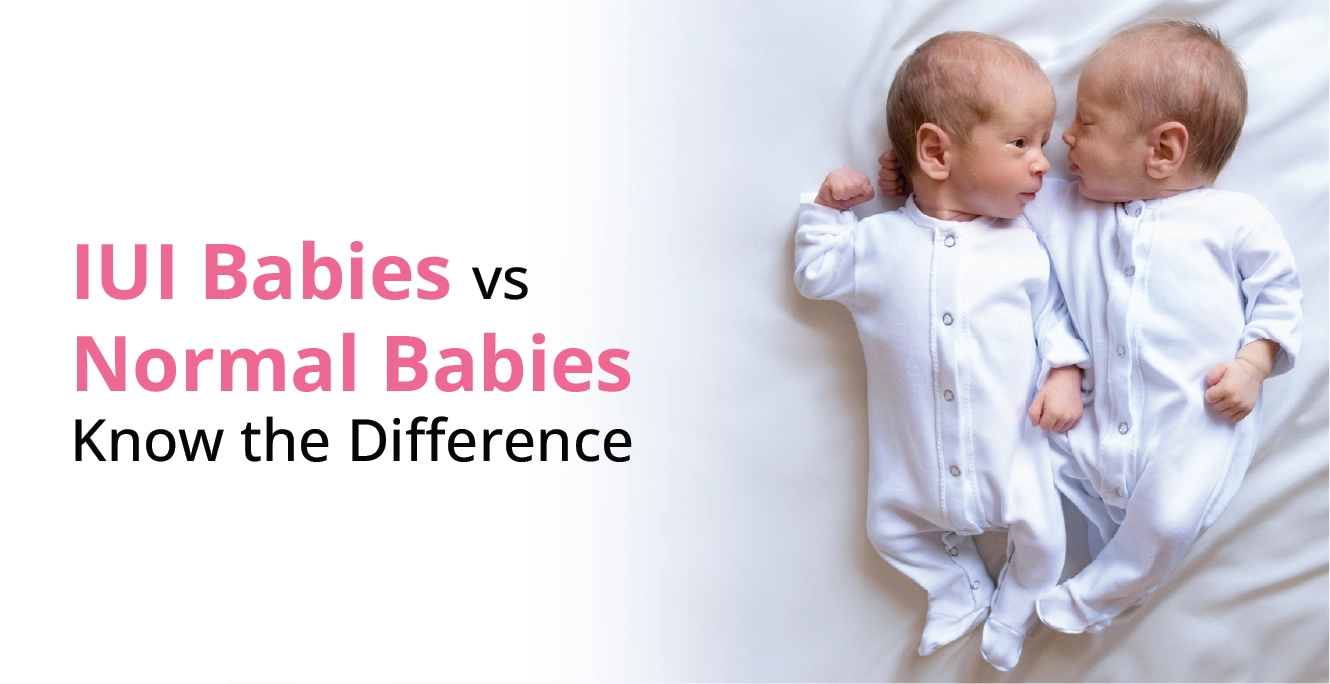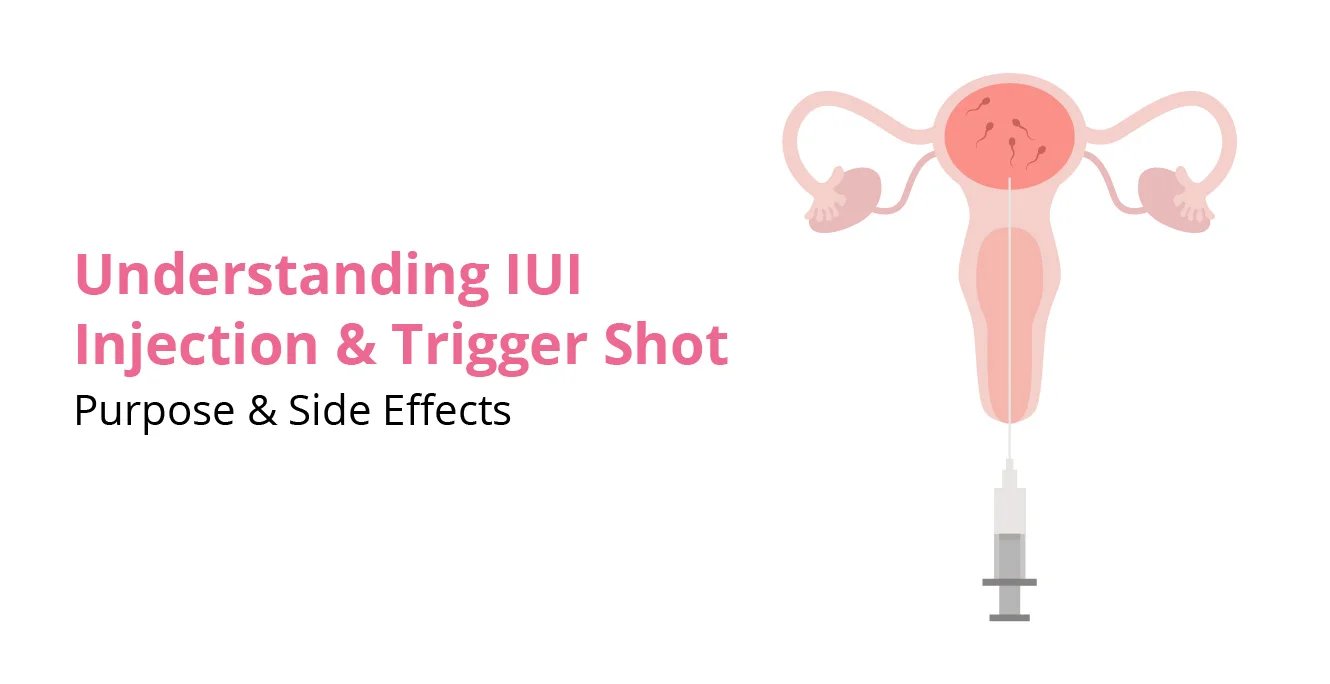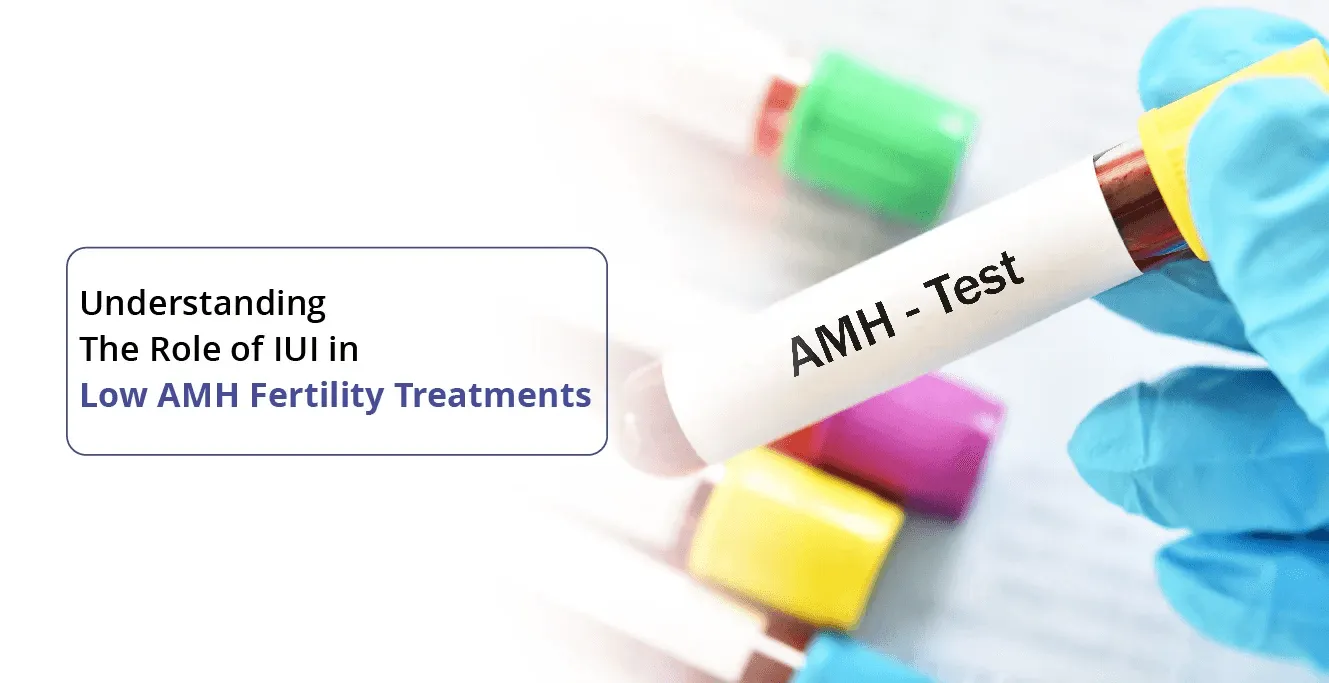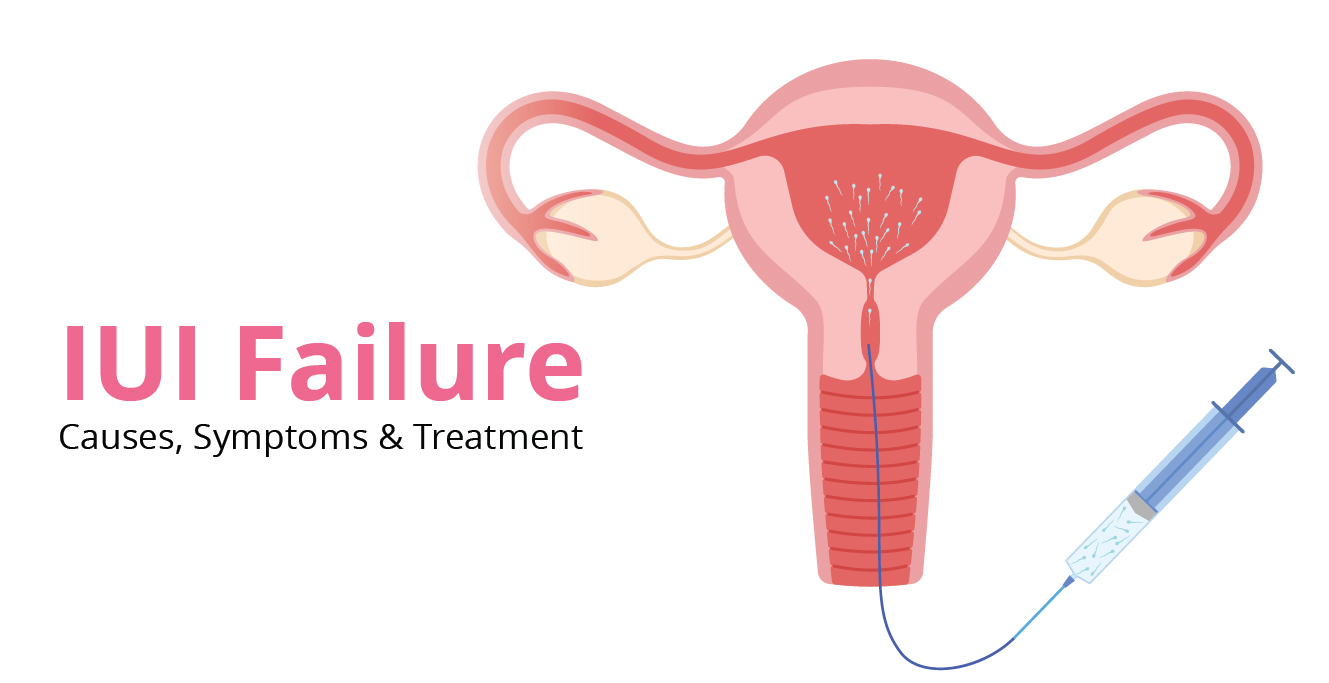
Is IUI Painful Procedure?

Table of Contents
- IUI Procedure
- When Is IUI Recommended?
- Who Should Avoid IUI?
- Is The IUI Procedure Painful?
- How Long Does The IUI Procedure Take?
- Myths vs. Facts About IUI
- IUI And IVF: Which Is Painful?
- Factors That May cause discomfort during IUI
- Which Step of IUI Is Painful?
- How to Manage Discomfort After The IUI Procedure?
- Home Remedies To Manage Pain:
- Conclusion
- FAQs
When it comes to any medical procedures, especially those that are extremely important for your family planning, it is quite common to have some anxiety. If you are among those opting for Intrauterine Insemination (IUI), you may wonder if the procedure is painful. In this article, we will walk through some facts about IUI and also debunk the misconceptions about this procedure that will help you approach the process with less worry and more confidence.
IUI Procedure
The IUI Procedure typically takes only a few minutes and does not require anaesthesia or sedation. Here is what you can expect:
- You will lie on an examination table with your feet in stirrups, similar to a routine gynaecological exam.
- A speculum will be inserted into your vagina to provide access to your cervix.
- A thin and flexible catheter will be passed through the cervix and into the uterus.
- The specially prepared sperm will be slowly injected through the catheter directly into the uterus.
- The catheter and speculum will be removed, and you will be asked to lie still for a short period.
- Most women describe the sensation as a slight pinching or cramping feeling when the catheter passes through the cervix. This discomfort is usually brief and subsides quickly once the procedure is complete.
When Is IUI Recommended?
- IUI is often advised when a couple fails to conceive naturally despite having regular and unprotected intercourse. The procedure would work best if there are no significant fertility issues in the uterus or fallopian tubes.
- IUI is also recommended for cases of unexplained infertility. Besides, IUI is suitable for mild male factor infertility where there is, for example, a slightly low sperm count or sperm motility is mildly affected.
- Women who do not ovulate regularly or have mild PCOS can be helped by IUI, particularly if IUI is combined with ovulation induction treatment.
- IUI is also helpful in cases where donor sperm is utilised or when cervical mucus is a barrier to sperm movement.
Who Should Avoid IUI?
IUI is usually not recommended for:
- Women with blocked or severely damaged fallopian tubes. Fertilisation cannot occur if the egg and sperm cannot meet.
- Couples facing severe male infertility may not benefit from IUI. In such cases, IVF is often considered a more effective option.
- Women with advanced endometriosis or very low ovarian reserve may also be advised to explore other fertility treatments.
Is The IUI Procedure Painful?
IUI is usually not known to be a painful procedure. The majority of women report the experience as only slight discomfort and not really pain. You may sense a bit of pressure when the speculum gets inserted or the thin catheter goes through the cervix. Most of the time, these sensations last only a few seconds. Some women may feel minor cramps after the treatment, but these are short-lived and disappear naturally. The intensity of pain also differs depending on individual sensitivity and the anatomy of their cervix.
How Long Does The IUI Procedure Take?
The insemination itself is quick and usually takes five to ten minutes. The entire clinic visit typically lasts around twenty to thirty minutes, including preparation and rest time afterwards. Most women can return to normal activities on the same day.
Myths vs. Facts About IUI
There are several misconceptions surrounding IUI and the level of pain or discomfort associated with the IUI procedure. Let’s separate the myths from the facts:
| Myth | Fact |
| IUI is a highly invasive procedure. | IUI is minimally invasive, involving only the insertion of a thin catheter through the cervix into the uterus. |
| IUI is always successful. | The success rate of IUI varies based on factors such as age, sperm quality, and the underlying cause of infertility. |
| IUI requires multiple visits to the clinic. | While multiple inseminations may be necessary in some cases, each IUI procedure is relatively quick and straightforward. |
| IUI is only for young couples. | IUI can be beneficial for couples of various ages, as well as single women and same-sex couples using donor sperm. |
| IUI has zero risks. | Although generally safe, IUI carries some risks, such as multiple births, mild cramping, and spotting. Infection or allergic reactions to fertility medications are rare. |
IUI And IVF: Which Is Painful?
Pain or discomfort is one of the key concerns that many couples fear about fertility treatments. Is IUI more painful than IVF or vice versa? Let’s uncover the facts.
| Procedure | What does it involve? | Pain level |
| IUI | It involves inserting a thin catheter through the cervix to inject sperm directly into the uterus. |
|
| IVF | It involves egg retrieval, fertilisation in a lab, and embryo transfer into the uterus. |
|
Though both IUI and IVF involve some level of physical discomfort, IVF has more steps, and being an advanced procedure, it is also more complex. However, with proper medical support and pain management techniques, many patients find it manageable.
Factors That May cause discomfort during IUI
While most women experience little to no pain during IUI, some may feel mild cramping or discomfort. The following factors can influence the level of discomfort experienced:
- Sensitivity of the cervix: It can influence how comfortable a person feels. A tight or angled cervix can cause brief discomfort when the catheter is being inserted.
- Anxiety or muscle tension: It can also make the procedure feel more uncomfortable. Staying calm often helps to lessen the pain.
- Uterine contractions: After insemination, mild uterine contractions may cause light cramping. It usually disappears after a few hours.
- Underlying health conditions: Infections or untreated inflammation may also increase discomfort.
It is important to understand that everyone has a unique experience and condition and what may be uncomfortable for one person may not be for another.
Which Step of IUI Is Painful?
Most IUI steps cause very little to no pain at all. Any discomfort is usually very mild and short-lived. Here is the breakdown of each step with the level of discomfort:
- Speculum insertion: The speculum is used to open the vagina to visualise the cervix. You may feel some pressure or stretching, similar to a regular pelvic exam, but that lasts for a few seconds only.
- Catheter insertion: A thin and soft catheter is carefully pushed through the cervix to place the sperm into the uterus. Some women may experience cramping or a pinching feeling briefly at that time. The discomfort is gone once the catheter is taken out.
- Post-Procedure: For a few hours after, you may experience slight cramping in the lower abdomen. This is because the uterus is responding to the catheter or the fluid used during the insemination process. Such cramps are generally mild, and you can continue with your daily activities as usual.
How to Manage Discomfort After The IUI Procedure?
Some women may experience mild cramping or discomfort after the IUI procedure, but these can be managed through simple measures, which include:
- Over-the-counter pain relievers: Non-prescription medications like ibuprofen or acetaminophen can help alleviate mild cramps. However, always consult with your doctor before taking any medication.
- Rest: Stay calm following your IUI procedure. Lying down for 20-30 minutes after the procedure can help reduce any immediate discomfort.
- Warm compresses: Applying a warm compress or heating pad to your lower abdomen may help soothe any lingering cramping or discomfort.
Home Remedies To Manage Pain:
Below are some home remedies that may help relieve your discomfort:
- Keep yourself hydrated with herbal teas, such as chamomile or ginger. This may help reduce bloating and calm inflammation.
- Gentle yoga or deep breathing exercises can help relieve tension and improve circulation.
- Incorporate anti-inflammatory foods like turmeric and leafy greens in your diet. These may help reduce discomfort
- Elevating your legs while lying on your back can help you relax and may ease mild abdominal discomfort.
If you feel unmanageable pain that is not going away, immediately consult your fertility specialist.
Conclusion
IUI is one of the least invasive fertility treatments. It causes little to no pain for most of the women. Knowing about the procedure helps lower your stress and makes your journey more comfortable. A fertility doctor can guide you on whether IUI would be an appropriate choice to start with, given your circumstances. Whenever you are in doubt about fertility procedures, you can talk to our fertility specialists at Birla Fertility & IVF without any hesitation. They will offer you the clarity you need and the right guidance.
FAQs
Q: Is IUI painful like HSG?
No. IUI is usually much less uncomfortable than an HSG test.
Q: Does IUI involve anaesthesia?
No. IUI does not require anaesthesia.
Q: Which is more painful, IUI or IVF?
IVF is generally painful due to injections and egg retrieval. But the pain is usually well-managed by many women.
Q: Does IUI increase the chances of multiple pregnancies?
IUI itself does not. Fertility medicines used with IUI can increase the chance of multiple pregnancies. It is best to discuss the possibilities with your fertility specialist.
Our Fertility Specialists
Related Blogs
To know more
Birla Fertility & IVF aims at transforming the future of fertility globally, through outstanding clinical outcomes, research, innovation and compassionate care.
Had an IVF Failure?
Talk to our fertility experts

 Our Centers
Our Centers






















